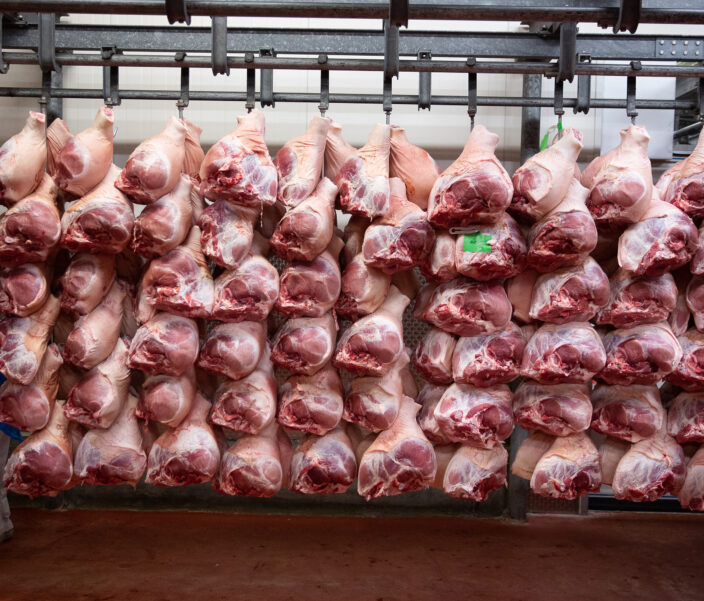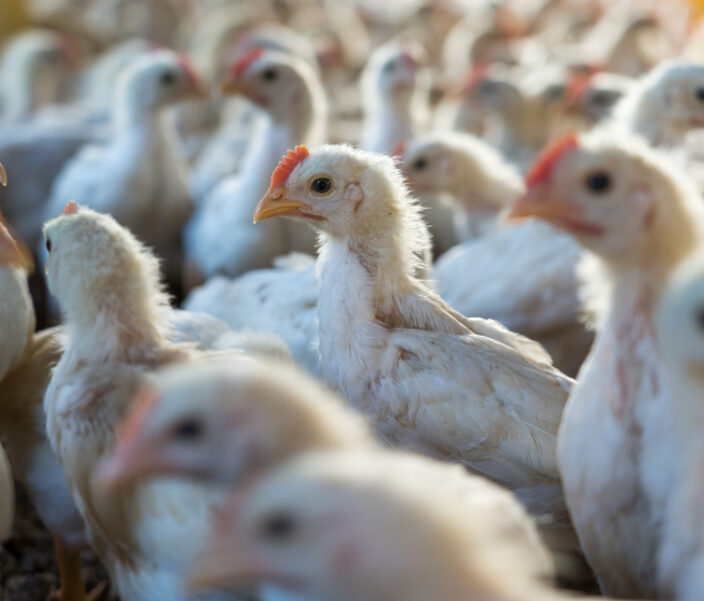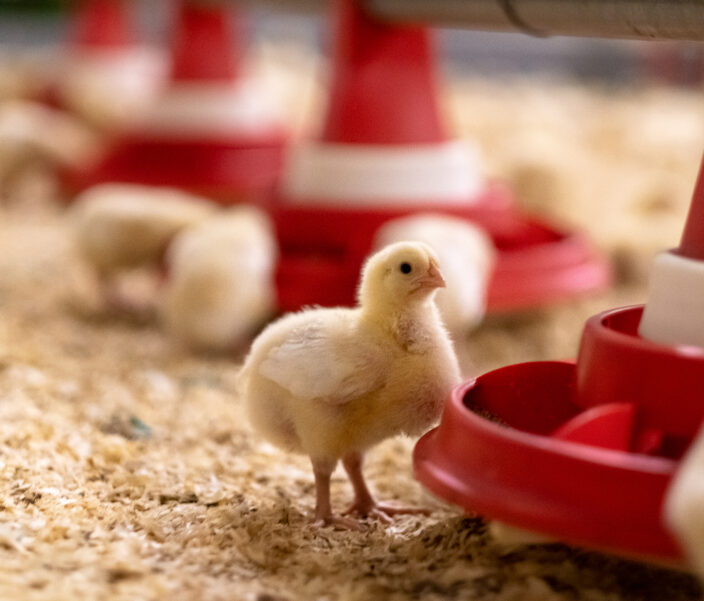Supporting poultry
welfare
In the global food animal industry as in the different poultry production sectors, animal welfare has become a topic of growing attention for the diverse stakeholders of the production chain as well as for the citizens.
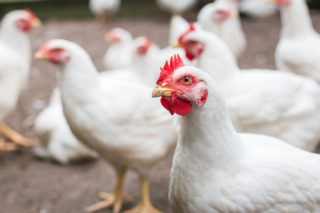
Animal welfare: a pressing demand of consumers and producers
The public awareness of animal welfare has raised globally and significantly over the recent decades, supported by the intensification of farming legislations to address the growing demand for transparency regarding animal production. For poultry species, these societal expectations are reflected in the evolution of the different farming systems. To name only a few, the conventional cages used for commercial layers were banned in the early 2000s in the EU to allow enriched cages. For poultry meat production, different ethical charters are now established in many poultry organizations to promote natural daylight in standard broiler houses and reduce stocking densities. Moreover, footpad dermatitis, an important indicator for welfare assessment in broilers and turkeys, developed into a criterion of the remuneration of farmers in many poultry organizations.
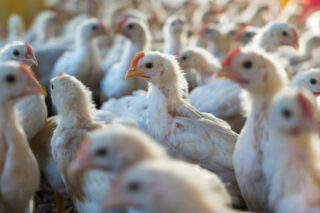
Supporting animal welfare: from idea to reality
Poultry welfare is a topic that can be influenced by several factors. Therefore, it needs to be managed by a holistic approach from the hatchery to the slaughterhouse. Animal nutrition might not be the most obvious pathway but is definitely an important tool to improve animal welfare. Given the antibacterial action of medium chain fatty acids (MCFAs) and their ability to support the poultry digestive process, the idea of using these ingredients to support animal welfare can be proposed.
Khosravinia (2015) assessed this idea by looking at the carcass characteristics and litter quality of Ross 308 birds raised at different stocking densities (14, 16, and 18 birds/m2) with or without the supplementation of Aromabiotic® Poultry, a well-balanced and patented mixture of MCFAs. Results showed that Aromabiotic® Poultry was able to reduce litter caking, one of the important factors contributing to the development of footpad lesions. Consequently, the birds fed with Aromabiotic® Poultry had an increased frequency of absence of footpad lesions (scores 0 and 1 scores) and a decreased frequency of severe scores (4 and 5 scores). Similar results were obtained for hock burns, another important poultry welfare indicator. At Agrimprove, although we believe that there is no miracle cure, we brought this idea to reality by showing that Aromabiotic® Poultry is a suitable ingredient for welfare-friendly poultry programs.
Solutions worth considering
Ready for improvement? Try one of our suggested solutions with a proven added value.
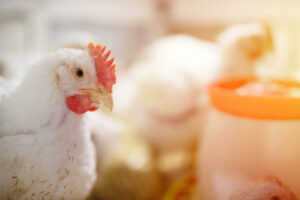
Your Agrimprove expert
Do you have a question or want personalized advice? Your Agrimprove expert is willing to help. Reach out directly or request to be contacted at your convenience.
Do you want to know more?
Leave us a message or contact your local Agrimprove expert.
We will get back to you with more detailed information.
